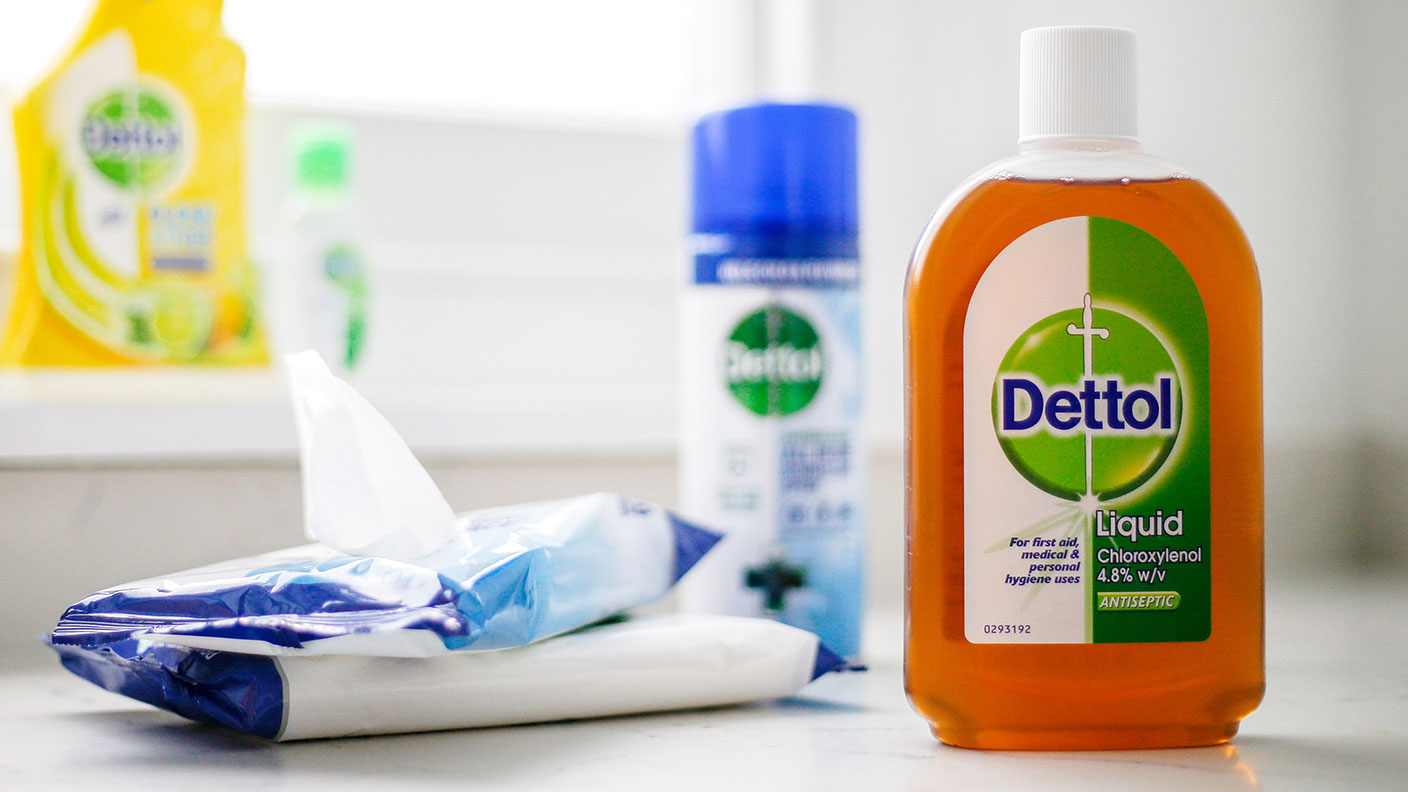Get the latest financial news, insights and expert analysis from our award-winning MoneyWeek team, to help you understand what really matters when it comes to your finances.
You are now subscribed
Your newsletter sign-up was successful
Want to add more newsletters?

Twice daily
MoneyWeek
Get the latest financial news, insights and expert analysis from our award-winning MoneyWeek team, to help you understand what really matters when it comes to your finances.

Four times a week
Look After My Bills
Sign up to our free money-saving newsletter, filled with the latest news and expert advice to help you find the best tips and deals for managing your bills. Start saving today!
Reckitt Benckiser is bidding for baby milk giant Mead Johnson. Will it pay too high a price? Ben Judge reports.
Reckitt Benckiser, the maker of household goods including Cillit Bang, Durex and Nurofen, has offered $16.7bn (£13.3bn) to buy Mead Johnson, the US-based maker of baby milk. Reckitt has offered $90 a share, a premium of almost 30% over Mead's share price before the news broke. The deal would be financed with cash and the issuance of new debt by Reckitt, which would mark "the end to a more-than-decade-long focus on retaining low leverage", says Nina Trentmann in The Wall Street Journal.
Buying Mead Johnson would be "a major departure from Reckitt's old diet of small purchases", says Nils Pratley in The Guardian. And while investors are "inclined to smile on any proposed big acquisition", it does seem a very "un-Reckitt-like" deal. Reckitt is paying about 29 times earnings, which would be fine if Mead were growing fast, but the firm's sales fell last year. It almost smacks of desperation. Reckitt's chief executive, Rakesh Kapoor, "has been warming up his investors for a big move for a while", but the assumption was that he was aiming for "an unloved consumer healthcare division of a big pharmaceutical firm". Mead isn't that, yet Reckitt is "happy to push its own borrowing ratios to the maximum" to buy it. "It all suggests Kapoor failed to find what he really wants to buy and has settled for second-best."
MoneyWeek
Subscribe to MoneyWeek today and get your first six magazine issues absolutely FREE

Sign up to Money Morning
Don't miss the latest investment and personal finances news, market analysis, plus money-saving tips with our free twice-daily newsletter
Don't miss the latest investment and personal finances news, market analysis, plus money-saving tips with our free twice-daily newsletter
Shareholders should certainly be questioning "if they're getting much Cillit Bang for their buck", agrees Jim Armitage in the Evening Standard. Much of Mead's US income is reliant on government programmes for low-income families. President Donald Trump is "not keen on welfare" and any substantial changes could hurt this business. Overseas markets aren't safe from the "Donald Trump effect", either. China is Mead's big international market but "what happens if the president embarks on a trade war"? Even if that doesn't happen, growth has been disappointing lately. "Reckitt investors should think hard before agreeing this deal. They could end up sucking on a dummy."
The price is definitely steep, agrees the Financial Times' Lex column. Still, buying Mead looks a "good strategic move" with "no major antitrust implications". And note that Reckitt is offering to pay cash, rather than paying in its own shares, which themselves are highly valued. "It thinks it can run the business better, and wants that upside for its own shareholders." That may be fair enough. Mead is a "drifting business". Reckitt is more efficient and can turn its considerable marketing expertise to infant milk. "Provided Chinese babies take to formula that Reckitt may hype like dishwasher tablets shareholders should feel nourished."
Get the latest financial news, insights and expert analysis from our award-winning MoneyWeek team, to help you understand what really matters when it comes to your finances.

-
 Should you buy an active ETF?
Should you buy an active ETF?ETFs are often mischaracterised as passive products, but they can be a convenient way to add active management to your portfolio
-
 Power up your pension before 5 April – easy ways to save before the tax year end
Power up your pension before 5 April – easy ways to save before the tax year endWith the end of the tax year looming, pension savers currently have a window to review and maximise what’s going into their retirement funds – we look at how
-
 Reckitt shares are undervalued
Reckitt shares are undervaluedTips Reckitt shares have struggled in recent years, but the consumer-goods giant is now getting its act together.
-
 Investors should take a closer look at Reckitt as an inflation hedge
Investors should take a closer look at Reckitt as an inflation hedgeAnalysis Consumers are sticking with Reckitt Benckiser despite it passing on higher costs, and the company is expecting further growth. Rupert Hargreaves looks at the latest figures.
-
 Reckitt Benckiser’s clean-up
Reckitt Benckiser’s clean-upFeatures The consumer-goods sector is no longer the cash cow it once was. Reckitt’s revamp will help it buy some growth. Alice Gråhns reports.
-
Retreat from risk: buy stocks with moats
Features A moat represents a castle’s first line of defence against intruders. An ‘economic moat’ does the same thing for a company – and it’s a critical feature to look for before you invest in any stock, says Phil Oakley.
-
 My favourite stock in the Big Pharma sector
My favourite stock in the Big Pharma sectorFeatures Ed Bowsher explains what’s going on in the pharmaceuticals industry, and picks his favourite stock in the sector.
